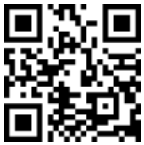关于组织参加“北航2019年UIUC先进教学方法专题培训项目”报名的通知
培训时间:2019年6月17-21日五天,每天1.5小时培训课程;
培训地点:北京航空航天大学学院路校区,住校内宾馆
培训专家:UIUC(美国伊利诺伊大学香槟分校)教师发展高级专家Cheelan Bo-Linn女士
培训课程:内容见附件
培训费用:免培训费,差旅费由个人或所在学院(单位)承担
接收报名人数:20人,每个学院最多不超过3人,先报先得
报名要求:培训为全英文教学,要求报名教师具备良好的英语听说能力
报名网址:https://jinshuju.net/f/RLGVCp
报名二维码:

截止时间:2018年6月10日下午5:00
联系人:易洋 84891009
教师发展与教学评估中心
2019年5月15日
附件:
Proposed Workshop Topics and Abstracts for Beihang University, June 2019
Cheelan Bo-Linn
cbolinn@illinois.edu
University of Illinois Center for Innovation in Teaching & Learning
There will be two series for the faculty of Beihang University
· Teaching & Learning Seminars 101 – Essentials of College Teaching (for the faculty starting in June 2019)
· Teaching & Learning Seminars 201 – Enhancing Student Learning (for the faculty who came last year in June 2018)
Format: there will be five 1½ hour sessions in each of the series: now named as Teaching & Learning Seminars 101 and 201.
Design: The sessions will be highly interactive and the content, strategies and concepts are research-based principles.
Expectations:
· Faculty participants will need to be proficient in English to participate fully in the sessions without a translator
· The sessions will build on each other and as such, it is expected that the faculty will be able to attend all of the sessions in the series
· The faculty will identify and practice specific strategies and approaches to implement in their courses
Teaching & Learning Seminars 101 – Essentials of College Teaching
(for the faculty just starting in June 2019)
Day 1: A Learner-Centered Course Design to Enhance Significant Learning
“To begin with the end in mind means to start with a clear understanding of your destination. It means to know where you’re going so that you better understand where you are now so that the steps you take are always in the right direction.”
(Stephen R. Covey, the 7 Habits of Highly Effective People)
Dee Fink poses a fundamental question for all teachers: How can I create courses that will provide significant learning experiences for my students? He urges teachers to shift from a content-centered approach to a learning-centered approach that asks What kinds of learning will be significant for students, and how can I create a course that will result in that kind of learning? This designs means making hard decisions about what is important to keep or to eliminate. Using a more thoughtful and effective approach, attendees will begin designing/redesigning their courses.
Day 2: Creating a Promising Syllabus to Motivate Learning
At its most basic level, the syllabus is used to communicate information about the course, the instructor, learning objectives, assignments, grading policies, due dates, the university’s academic integrity statement, and, in some cases, an increasingly long list of strongly worded admonitions on what is and isn’t acceptable behavior in the college classroom. Is it just a contract?
Look at your syllabus. What is the message? What is your tone? Will the course be inviting, engaging and motivating? Will it be collaborative? Fair? This is a great opportunity to think about how/if your syllabus promotes a learning-center environment. We’ll also help you create a graphic syllabus.
Day 3: Effective Questioning Strategies to Improve Student Engagement and Thinking
Have you ever asked a question and you’re met with silence? Or do the same students always eagerly raise their hands to answer. Or perhaps students don’t know how to answer questions requiring higher level thinking.
We all know the importance of including questions in our teaching. Questions serve to motivate students, to assess students’ understanding, and to engage them in a thought-provoking discussion. Effective questioning skills require us to plan carefully not only the type of questions, but also the timing and sequencing. Come join this session to learn about how to create an effective question, but also how to encourage students to participate.
Day 4: Creating Effective Team Assignments and Student Teams: What, How, and Why
With the increased demand for students to work effectively in teams, many instructors have implemented short-term and semester-long team projects in their courses. There are many benefits derived from this experience, such as mastering the content through teaching their peers. Often, however, these experiences are not optimal because the students (and faculty…) were not adequately prepared. Here are some key issues we will address:
What are some of the considerations for making this a valuable learning experience?
How should teams be created?
What are important team skills that students should learn?
What makes a good team assignment?
How do we assess team work?
We'll address these questions and more in this highly interactive workshop. Handouts with sample assessment forms will be provided.
Day 5: “I wish I had known that earlier”: Using Informal Student Feedback (IEF)
to Improve Teaching and Learning
Many universities implement a formal end-of-semester student ratings to provide information about teaching effectiveness. Typically, the faculty receive the results sometime after the semester has ended. Unfortunately, critical information that could make a significant difference in your class is received too late. However, by using a very effective strategy, called the Informal Early Feedback (IEF) early in this semester, you can receive timely feedback to immediately implement. You’ll get important information right now about what is successful and not as successful on both the teaching and learning. In this session, we will focus on the use of several informal feedback mechanisms and help you develop your own individualized IEF form to implement in your courses.

